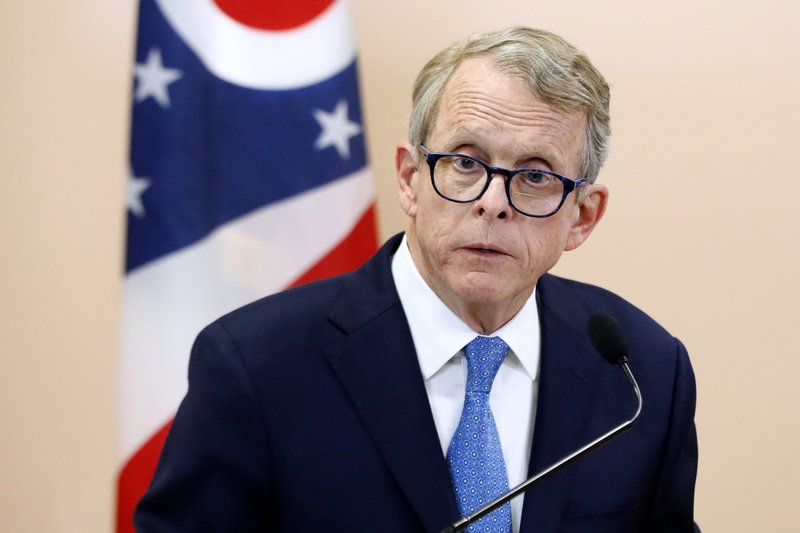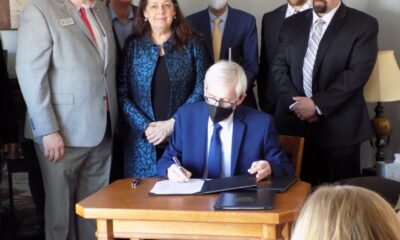National
Drugmakers seek sanctions over ’60 Minutes’ comments

CLEVELAND (AP) — Several drug manufacturers targeted in lawsuits over the opioid epidemic have asked a federal judge in Cleveland to sanction the man who is Ohio’s attorney general and governor-elect, along with two other lawyers, for statements they made in recent television interviews.
Friday’s motion said statements by Republican Attorney General and Gov.-elect Mike DeWine and the others on an episode of CBS’ “60 Minutes” were calculated to taint potential jury pools, Cleveland.com reported.
DeWine and attorneys Mike Moore and Burton LeBlanc were part of a Dec. 16 segment on the news magazine show about litigation over the role of big pharmaceutical companies in the deadly opioid epidemic.
Correspondent Bill Whitaker explored topics including the value of potential damages and data on pill distribution in states and cities collected by the U.S. Drug Enforcement Administration.
The motion was filed by attorneys for several drug manufacturers and distributors, including Cardinal Health, Endo, AmerisourceBergen and Purdue Pharma. It alleges DeWine, Moore and LeBlanc were part of a “concerted campaign” by lawyers representing state and local governments “to taint potential jury pools . through misleading, inflammatory, and improper public statements.”
The motion asks the judge to impose a gag order and other sanctions. The defendants claim the men’s statements represented “a flagrant violation of their ethical obligations as attorneys practicing before this Court and threatens defendants’ rights to a fair adjudication of the claims asserted against them.”
Attorney General’s Office spokesman Dan Tierney told The Associated Press in an email Saturday night that Dewine “respectfully declines comment.”
Cleveland.com reports that Moore declined to comment Friday because he hadn’t seen the motion and that LeBlanc didn’t immediately respond to a voicemail. Phone and email messages seeking comment were left for both attorneys Sunday by The Associated Press.
The motion comes amid preparations for a September trial over claims against drug companies by the cities of Cleveland and Akron and their respective counties, Cuyahoga and Summit. The cases are among scores from around the country being heard by U.S. District Judge Dan Polster.
A group represented by DeWine filed its own lawsuits over fallout from the opioid epidemic. A second, larger group has joined a multistate investigation of the industry.
The suits accuse pharmaceutical companies of downplaying the addictive nature of opioids and prescription painkillers largely blamed for one of the deadliest drug crises in U.S. history.
Ohio’s opioid lawsuit, in which Moore is involved, isn’t included among those Polster is overseeing, because it’s being heard in a Ross County court. DeWine has participated in settlement talks in the federal litigation.
The motion questions Moore saying that “if we try the Ohio case, if we win a verdict against these manufacturers and distributors there, it could bankrupt them” and that a jury may award $100 billion in a trial.
It notes DeWine told “60 Minutes” he had seen a set of data from the federal Automated Reports and Consolidated Ordering System, or ARCOS, database that he wasn’t allowed to talk about but that was “shocking.” He said distributors should have seen something was wrong.
LeBlanc discussed how defendants had access to the ARCOS database, which defendants say was misleading.




